UNDERSTANDING
THE SOCIAL ECONOMY
A Canadian Perspective
SECOND EDITION
In Understanding the Social Economy, 2nd edition, Jack Quarter, Laurie Mook, and Ann Armstrong examine a wide array of organizations founded upon a social mission social enterprises, non-profits, co-operatives, credit unions, and community development associations. Organized under the framework of the social economy, this comprehensive text addresses an area often overlooked in the curricula despite its important role in Canadas economy.
Suitable for courses addressing community economic development, co-operatives, and non-profit organizations, the volume presents a unique set of case studies as well as chapters on organizational design and governance, social finance and social accounting, and accountability. The many examples provide useful context and allow for an in-depth examination of the relationships between Canadas social infrastructure and the public and private sectors. A much-needed work on an important but neglected facet of business studies, Understanding the Social Economy is an invaluable resource for the classroom and for participants working in the social sector.
JACK QUARTER is a professor and a founding member of the Centre for Learning, Social Economy & Work (CLSEW) at the Ontario Institute for Studies in Education, University of Toronto.
LAURIE MOOK is an associate professor in the School of Community Resources and Development at Arizona State University and former co-director of the Social Economy Centre at the Ontario Institute for Studies in Education, University of Toronto.
ANN ARMSTRONG is a lecturer at the Rotman School of Management, University of Toronto, and was the Schools director of its Social Enterprise Initiative.
UNDERSTANDING
THE SOCIAL ECONOMY
A Canadian Perspective
Second Edition

JACK QUARTER
LAURIE MOOK
ANN ARMSTRONG
UNIVERSITY OF TORONTO PRESS
Toronto Buffalo London
University of Toronto Press 2017
Toronto Buffalo London
www.utorontopress.com
Printed in the U.S.A.
ISBN 978-1-4875-2033-5
 Printed on acid-free paper with vegetable-based inks.
Printed on acid-free paper with vegetable-based inks.
Library and Archives Canada Cataloguing in Publication
Quarter, Jack, 1941, author
Understanding the social economy : a Canadian perspective / Jack Quarter, Laurie Mook, Ann Armstrong. Second edition.
Includes bibliographical references and index.
ISBN 978-1-4875-2033-5 (cloth)
1. Community development Canada. 2. Cooperative societies Canada. 3. Nonprofit organizations Canada. 4. Canada Social policy. 5. Economics Canada Sociological aspects. 6. Business enterprises Canada Case studies. I. Mook, Laurie, author II. Armstrong, Ann, 1951, author III. Title.
HD2769.2.C3Q37 2017 306.30971 C2017-904920-8
University of Toronto Press acknowledges the financial assistance to its publishing program of the Canada Council for the Arts and the Ontario Arts Council, an agency of the Government of Ontario.

We dedicate this book to the tens of thousands of organizations that form Canadas social economy.
A Closer Look (Mini-Case Studies)
| Chapter 1 |
| Chapter 2 |
| Chapter 3 |
| Chapter 4 |
| Chapter 5 |
| Chapter 6 |
| Chapter 7 |
| Chapter 8 |
| Chapter 9 |
| Chapter 10 |
Cases for Analysis
| Chapter 1 |
| Chapter 2 |
| Chapter 3 |
| Chapter 4 |
| Chapter 5 |
| Chapter 6 |
| Chapter 7 |
| Chapter 8 |
| Chapter 9 |
| Chapter 10 |
| Chapter 11 |
Tables and Figures
Tables
Figures
Foreword
The social economy has always been with us; for as long as there have been government and for-profit enterprises, there have been people who have sought to advance the broad prosperity of our society from the peripheries of these two economic behemoths. These people, by and large, recognized a pressing social need and worked diligently whether as part of a non-profit, co-operative, community organization, or social enterprise to address it outside the standard strictures of business and government. They were typically driven not, as some have conjectured, by a hatred of profits or by bleeding-heart liberalism, but by a recognition that there is some necessary work government and business are not equipped or inclined to do effectively. In embracing this work, the social sector created a third way. This is the heart of the social economy and it is, as I say, nothing new.
What is new is our collective understanding and categorization of this social sector, and our explicit acknowledgment that it is worthy of study and analysis on its own merits. Until relatively recently, the social sector, and thus its true impact on our society, was largely hidden. The myriad participants in what has now come to be recognized as the social sector were lumped into awkward subcategories of the public and private sectors, treated as an insignificant afterthought, or ignored entirely by academia, industry, and policymakers. But in the past decade, we have finally come to see the sector in its collective strength; it is finally being recognized for its size, its economic importance, its social impact, and its unique contribution to society.
A text like Understanding the Social Economy: A Canadian Perspective, which takes a comprehensive view of the sector as a whole, is an important next step in deepening our understanding of the social economy. I am particularly pleased that my University of Toronto colleagues, Ann Armstrong from the Rotman School of Management, along with Jack Quarter from the Ontario Institute for Studies in Education (OISE), and Laurie Mook formerly from the University of Toronto and now from Arizona State University, have emerged at the forefront of this burgeoning field. In this text, they have created a usable and effective guidebook to understanding the Canadian social economy in the broad, global context. By thoughtfully combining commentary, sector analysis, and case studies, they have usefully blended the 30,000-foot overview of the mountain with a detailed examination of what is happening at the rock face. In doing so, they have devised a helpful classification scheme and identified critical issues that will lay the foundation for further research in the field. This text therefore represents a vital step to increasing the reach and effectiveness of the social economy sector, as its participants continue to shape our society for the better.
Roger Martin
Former Dean, Rotman School of Management
Preface
The second edition of Understanding the Social Economy is a significant update. It adds three new chapters on Strategic Leadership, Human Resource Management, and a concluding chapter titled Summary and Concluding Thoughts; seven new end-of-chapter case studies; many new Closer Look inserts within chapters; and updates the material from the first edition published in 2009. Like the first edition, this textbook presents the breadth of Canadas social economy and illustrates its points with examples drawn from across this country.

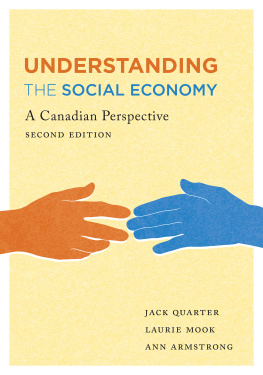
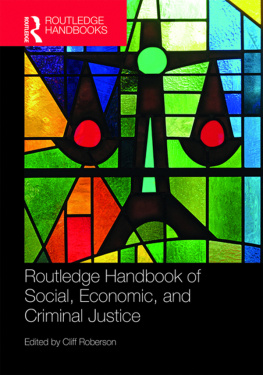
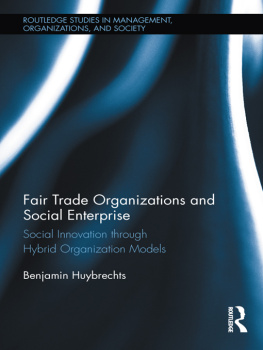
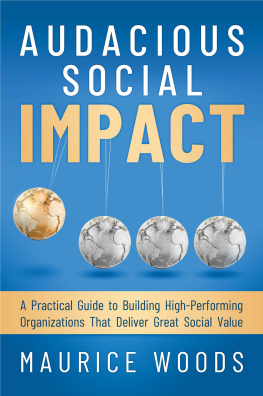

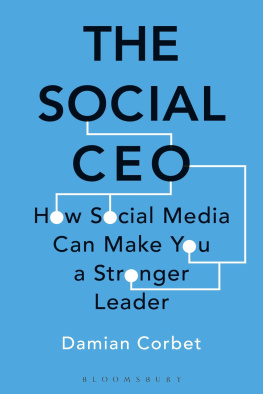
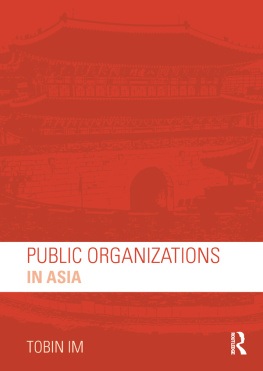
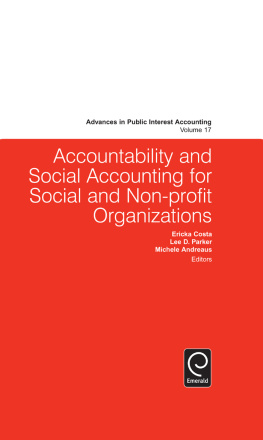


 Printed on acid-free paper with vegetable-based inks.
Printed on acid-free paper with vegetable-based inks.